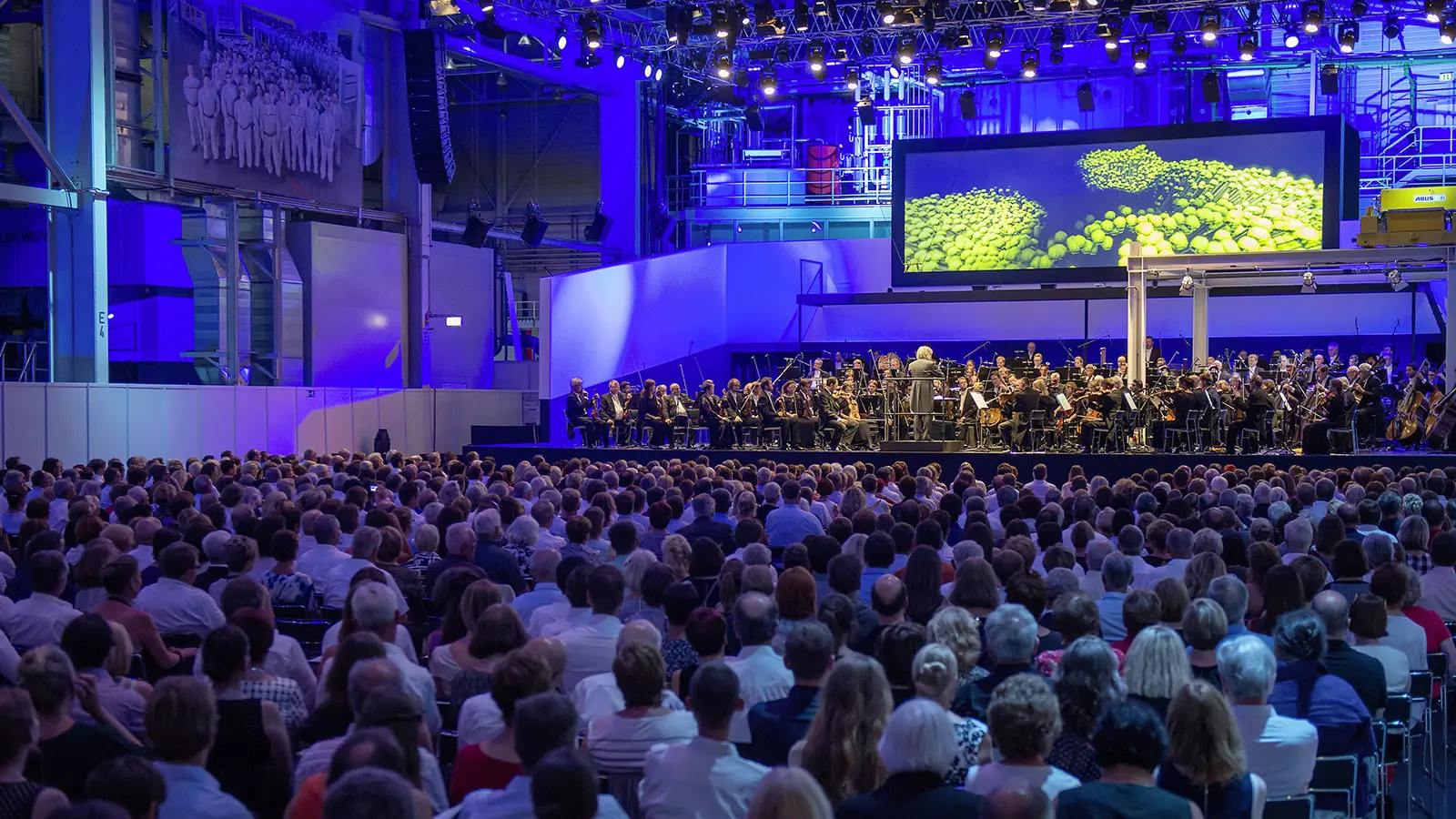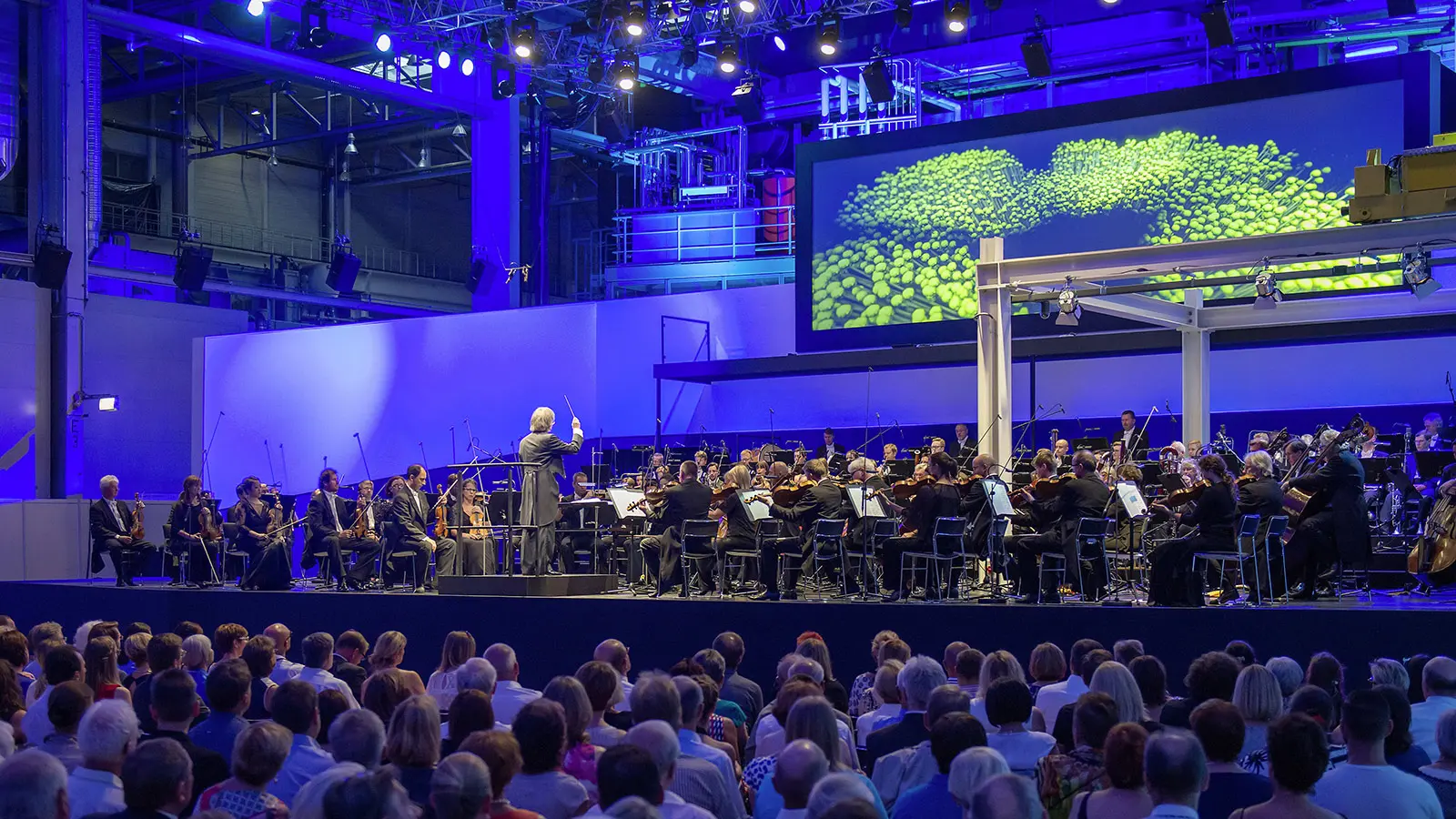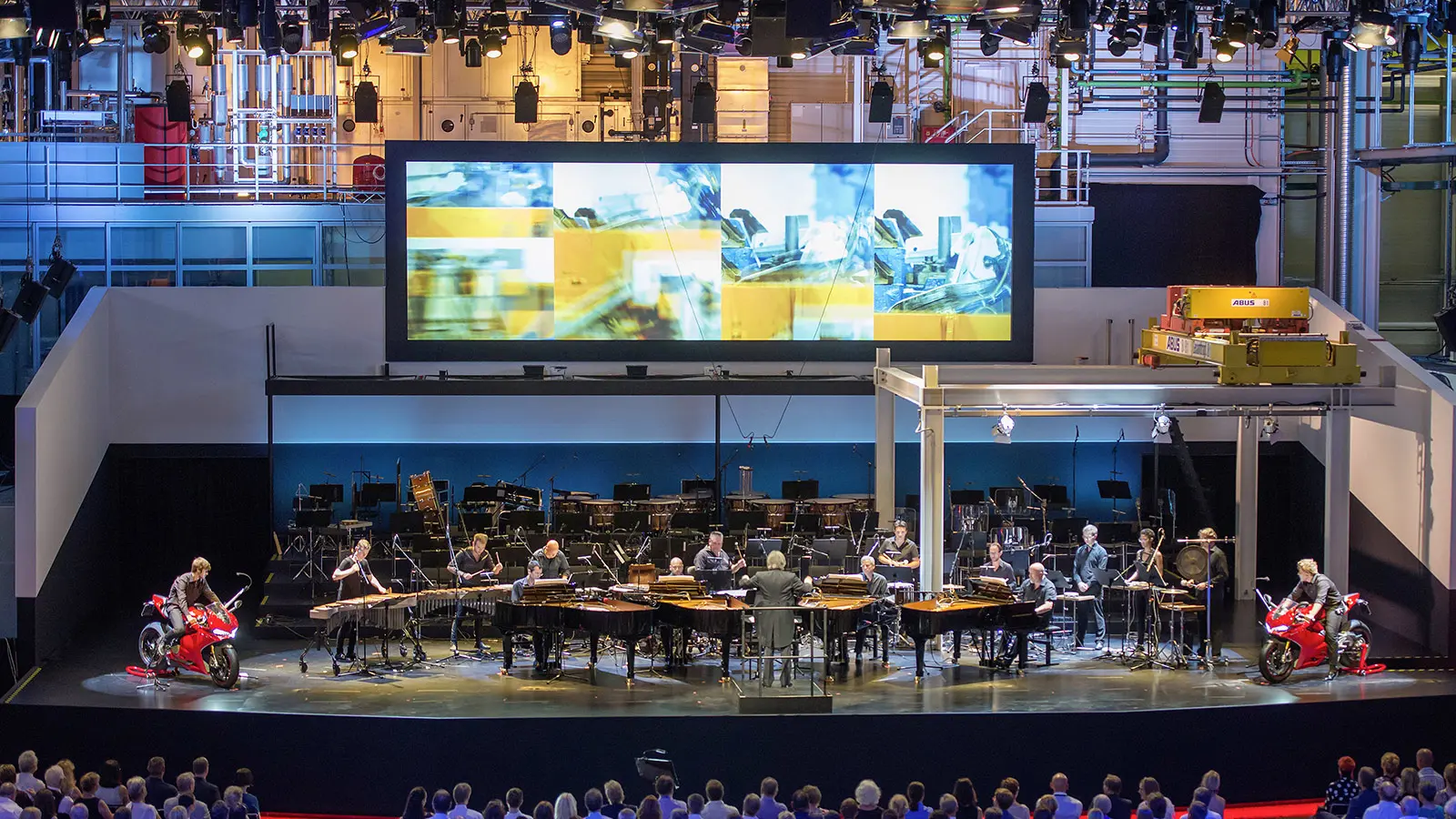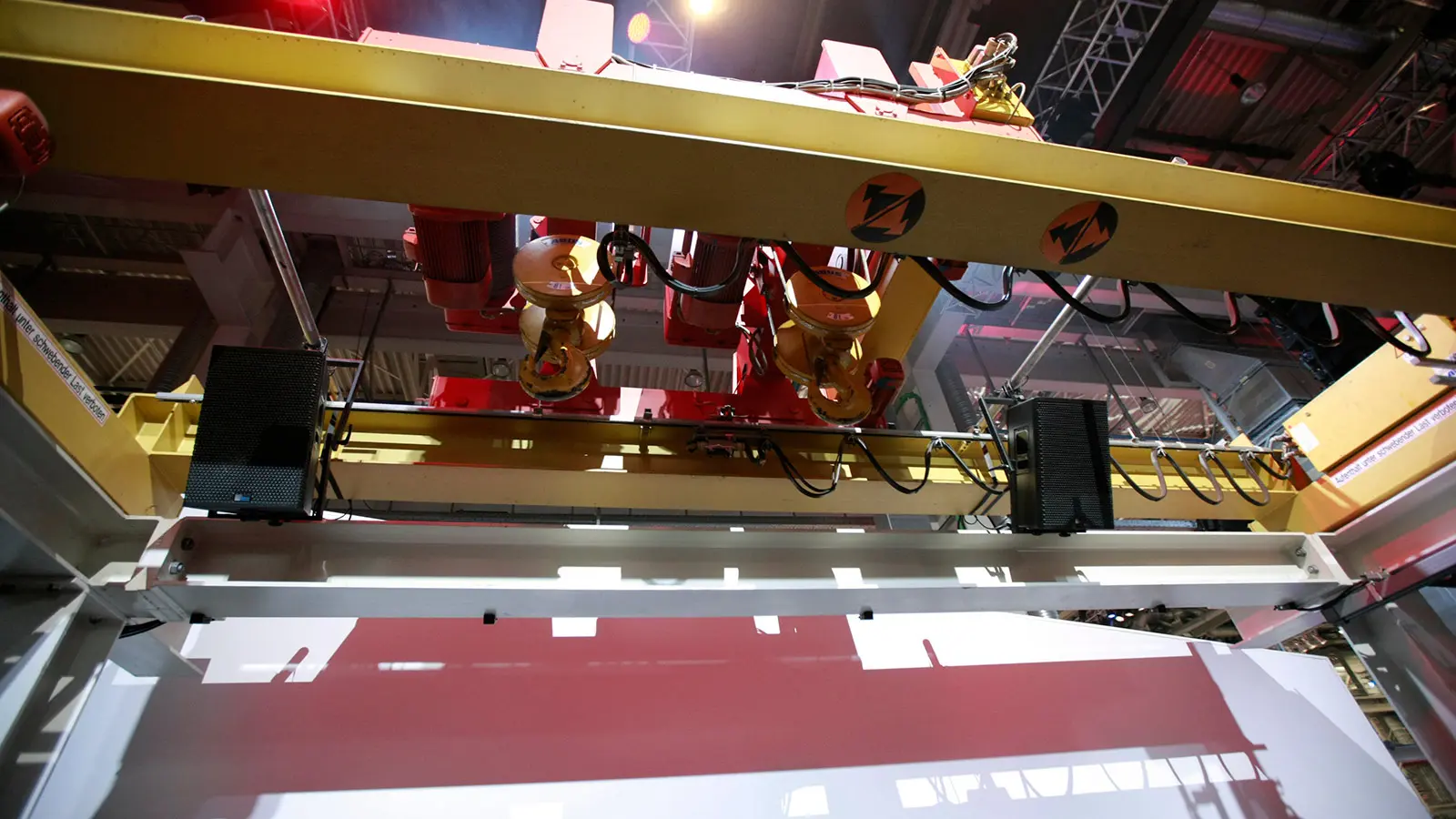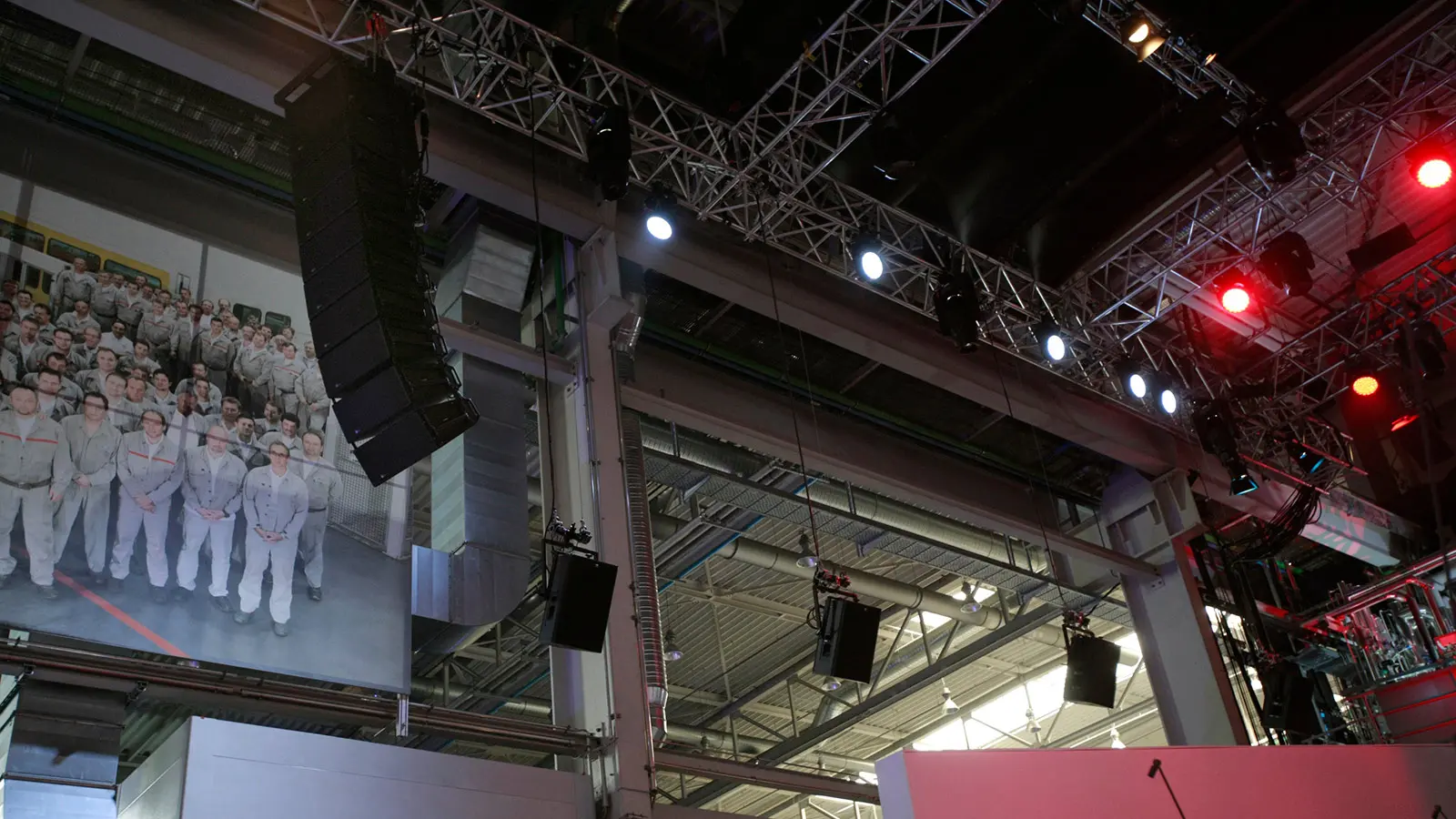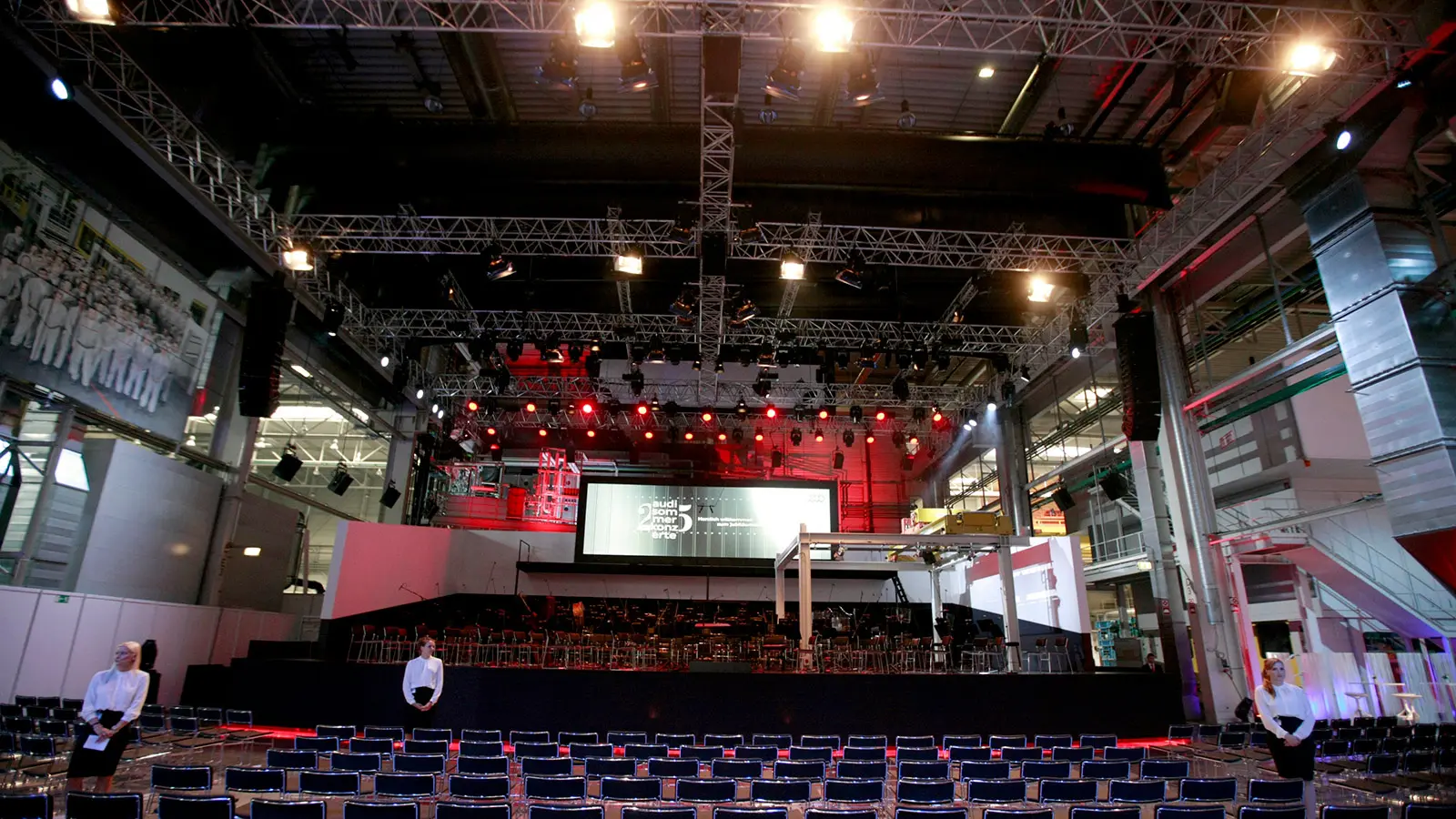It was truly breathtaking the way the LEOPARD arrays could accurately recreate the unique, full-bodied sound of the London Symphony. LEOPARD's linearity guarantees a transparent sound image, whether the orchestra is playing loud or soft passages.”
Ivo KönigCo-Managing Director, IT AUDIO GmbH
Featured Products
900‑LFC, Constellation, D-Mitri, Galileo Callisto 616, LEOPARD, M1D, UPA-1P, UPM‑1P, UPQ-1PFor the 25th Anniversary of Audi’s Summer Concert series inside its factory in Ingolstadt, Germany, Meyer Sound LEOPARD linear sound reinforcement and Constellation active acoustic systems formed the foundation of an extraordinary audio experience for both the audience and musicians. The combination transformed a cavernous space that normally stamps out steel side panels for the Audi A3 into a temporary concert hall worthy of hosting the London Symphony Orchestra and conductor Kent Nagano.
The concert was the first show where Constellation worked hand-in-glove with the new Meyer Sound LEOPARD line arrays. While Constellation provided a virtual orchestra shell to envelop musicians with the sonic environment of a concert hall, twin arrays of eight-each LEOPARD loudspeakers projected the performance to about 1,000 audience members.
“It was truly breathtaking the way the LEOPARD arrays could accurately recreate the unique, full-bodied sound of the London Symphony,” says Ivo König, IT AUDIO GmbH co-managing director who designed the system with Til Schwartz. “LEOPARD’s linearity guarantees a transparent sound image, whether the orchestra is playing loud or soft passages. This allows the sound engineer to fully concentrate on the musical score and the dynamics of the performance.”
LEOPARD also made a quick impression on FOH engineer Florian Denzler. “I was immediately surprised at how deep the system sounded, and how much headroom there was,” he says. “It really made mixing fun.”
The LEOPARD system also included eight 900‑LFC low-frequency control elements, with one element flown at the top of each array and two end-fire directional arrays of three elements each under the stage. Ten UPQ-1P and six UPM‑1P loudspeakers were used for center, near fill, and delay, and system drive and optimization was supplied by a Galileo Callisto loudspeaker management system with four Galileo Callisto 616 array processors.
The Constellation electronic shell was driven by a D-Mitri digital audio platform and delivered through 15 UPA-1P, five UPM-1P, and 16 M1D line array loudspeakers. To provide the foundational acoustics for Constellation, König and Schwartz prescribed passive acoustical treatments to control the room’s excessive low-mid reverberation.
“Using Constellation in a difficult acoustical space, I’m always amazed at the way I can close my eyes, clap my hands, and feel like I’m actually standing in a concert hall,” König says. “Maestro Nagano is very pleased, and the orchestra can thank Constellation for being able to play so effortlessly in otherwise unfriendly acoustics.”
Denzler mixed the show on a Soundcraft Vi6 console, with group pre-mixes by Philipp Treiber on a Soundcraft Vi4. Principal supplier of the audio and video systems for the event was Creative Technology of Stuttgart, Germany, and the entire event was directed by NIYU Media Projects.
This event was the first Audi Summer Concert to be hosted inside factory walls. The musical program opened with Bach’s “Toccata and Fugue in D Minor,” continued with George Antheil’s “Ballet Mécanique” which featured orchestrated sounds from three Ducati motorcycles, and concluded with Igor Stravinsky’s “Le Sacre du Printemps.”


